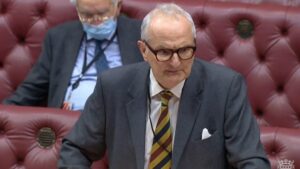
As much as £20 billion of taxpayer-backed Covid loans may have to be written off because of defaults by struggling borrowers, insolvency practitioners have warned.
The resignation of Lord Agnew of Oulton, the counter-fraud minister, has prompted an increased scrutiny of losses to criminals in the government’s emergency schemes, but Azets, an accountancy firm, has warned that these will be eclipsed by the hit to the public purse from legitimate borrowers going bust.
Duncan Swift, Azets’ restructuring and insolvency partner, said that a “substantial and increasing number of businesses are already struggling to make their loan repayments” on the bounce back loan and coronavirus business interruption loan schemes.
Under the former, £47 billion was lent through 1.6 million loans, with a 100 per cent guarantee from the taxpayer; a further £26 billion was lent via 110,000 coronavirus business interruption loans, with the state providing an 80 per cent guarantee.
The business department has estimated that £17.5 billion of bounce back credit may not be repaid.
Swift said that companies, especially smaler businesses, “have had to endure an exceptionally difficult two years and while many have closed, many that have persevered have managed to survive only due to the loans and other government-backed interventions. We believe that, across the UK, as much as £20 billion of all coronavirus business interruption loans and bounce back loans will become defaulted in some shape or form.
“While most business owners have no intention of committing fraud, an increasing number are finding that their business lacks the assets, cash or income to meet loan repayment demands and deadlines.”
The Treasury and the British Business Bank, which runs the schemes, are under pressure to provide more detail about the state of the guaranteed loan books. Fraud losses on the bounce back scheme have been projected at more than £4 billion and Agnew has accused the Treasury of “schoolboy errors” in its oversight efforts.
Read more:
Pandemic loan losses from bust businesses ‘set to dwarf fraud bill’
